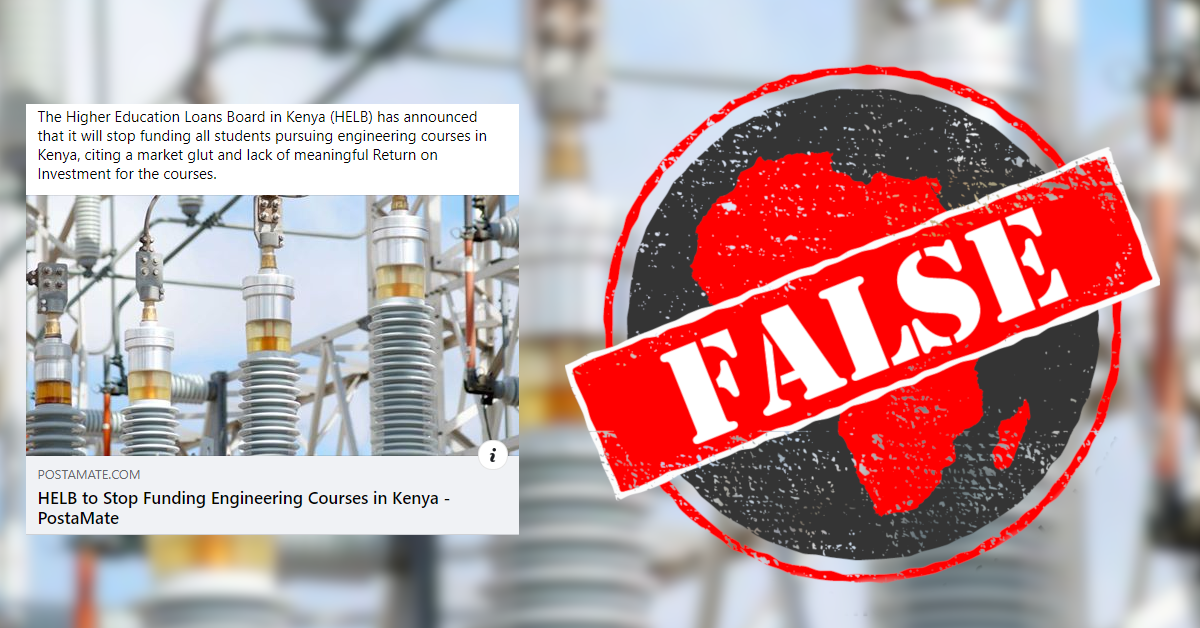An article shared on Facebook platforms claims the Higher Education Loans Board, a government agency that issues loans to university and college students, has stopped funding engineering courses.
“The Higher Education Loans Board in Kenya (Helb) has announced it will stop funding all students pursuing engineering courses in Kenya, citing a market glut and lack of meaningful return on investment for the courses,” part of the article reads.
It adds: “The board said a lot of money was being spent on engineering students but neither the country nor the students were getting any value.”
It reported that there is no real engineering work in Kenya and that engineers “end up going into business and other useless things like online work and social media influencing because there is nothing for them to do.”

But such a report touching on thousands of students who have spent a considerable amount of money and time in the course would have attracted local media and education stakeholders’ attention.
No such story has been broadcast or published locally.
The article did not mention the official making the comments but instead opted to use the word “the board.” Credible media sources would have mentioned the official and the date the remarks were made.
Helb has called the article “fake” and informed the public that all its communications are made through its official channels.
“Please note that any communication on matters Helb is done on official channels. Beware of fraudsters!” it tweeted. – Dancan Bwire
“The Higher Education Loans Board in Kenya (Helb) has announced it will stop funding all students pursuing engineering courses in Kenya, citing a market glut and lack of meaningful return on investment for the courses,” part of the article reads.
It adds: “The board said a lot of money was being spent on engineering students but neither the country nor the students were getting any value.”
It reported that there is no real engineering work in Kenya and that engineers “end up going into business and other useless things like online work and social media influencing because there is nothing for them to do.”

No such story on credible media houses
But such a report touching on thousands of students who have spent a considerable amount of money and time in the course would have attracted local media and education stakeholders’ attention.
No such story has been broadcast or published locally.
The article did not mention the official making the comments but instead opted to use the word “the board.” Credible media sources would have mentioned the official and the date the remarks were made.
Helb communication ‘done on official channels’
Helb has called the article “fake” and informed the public that all its communications are made through its official channels.
“Please note that any communication on matters Helb is done on official channels. Beware of fraudsters!” it tweeted. – Dancan Bwire
Republish our content for free
For publishers: what to do if your post is rated false
A fact-checker has rated your Facebook or Instagram post as “false”, “altered”, “partly false” or “missing context”. This could have serious consequences. What do you do?
Click on our guide for the steps you should follow.
Publishers guideAfrica Check teams up with Facebook
Africa Check is a partner in Meta's third-party fact-checking programme to help stop the spread of false information on social media.
The content we rate as “false” will be downgraded on Facebook and Instagram. This means fewer people will see it.
You can also help identify false information on Facebook. This guide explains how.


Add new comment